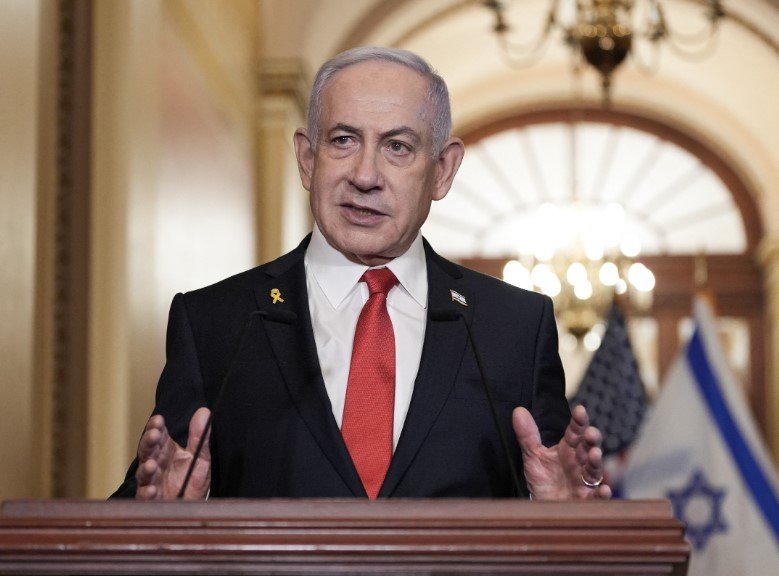Israeli Prime Minister signals end to ceasefire diplomacy, puts military on full alert
Israel’s Prime Minister Benjamin Netanyahu announced late Monday that his government has formally decided to occupy the entire Gaza Strip—marking a new and possibly final chapter in the long-drawn conflict between Israel and Hamas. The announcement came just hours after months of painstaking ceasefire and hostage negotiations in Doha appeared to stall permanently.
The sudden escalation has left allies scrambling, the region jittery, and thousands of civilians staring into uncertainty. As one Israeli official bluntly put it: “We’ve run out of patience.”
A Long War Inches Toward a Bigger Fire
Netanyahu’s declaration wasn’t exactly a whisper—it was a political thunderclap broadcast live. For those still hoping for a diplomatic exit ramp, it landed like a gut punch.
Israel has been fighting Hamas for nearly ten months since the October 2024 attacks. While international pressure had momentarily pushed the two sides into mediated discussions in Doha, the talks have yielded little since early July. Hamas demanded a permanent ceasefire before releasing remaining hostages. Israel wouldn’t budge without the hostages first.
Now, Netanyahu has signaled his government’s choice: war over talks.
The full message sent to Israel’s Chief of Staff Lt.-Gen. Eyal Zamir made it clear. Either the military prepares to fully seize Gaza, including parts still under Hamas control—or step aside.

Why Now? Netanyahu Faces Pressure on All Sides
Behind the scenes, there’s more to this than military strategy. Netanyahu is cornered politically.
Polls in Israel show a massive collapse in public trust. He’s been hammered by weekly protests outside his residence in Jerusalem. Families of hostages accuse him of dragging negotiations to prolong his own survival. Even some within his own Likud party have begun whispering about early elections.
In the middle of it all:
-
The army is demanding clearer orders.
-
Washington is growing impatient.
-
His coalition partners on the far right are threatening to walk if Gaza isn’t completely taken.
One Israeli analyst called this “a move made under duress, not confidence.”
U.S. Treads Carefully, But Frustration Builds
The White House response was measured—at least on the surface. A senior U.S. official told reporters that America continues to support Israel’s right to defend itself but added that “any action that deepens civilian harm or stalls hostage return will complicate things.”
Translation: We’re watching. Don’t screw this up.
President Biden is reportedly furious. According to Axios, he’s been briefed on “significant friction” between the Pentagon and Israeli leadership over operational clarity. There’s also worry that a full occupation could drag U.S. forces deeper into regional risks—from Lebanon to the Red Sea.
Still, public rebukes remain off the table. Elections are looming. And Biden, despite frustration, needs Jewish-American support more than ever.
Inside Gaza: Civilians Brace for the Worst
In Gaza, it’s hard to overstate the despair. Entire neighborhoods have already been leveled since the war began. Food supplies are erratic. Clean water is a luxury.
UN agencies estimate nearly 1.4 million Gazans—roughly 60% of the population—are now internally displaced.
Aid workers say the tone has shifted sharply over the last 48 hours. One UN employee said over encrypted text, “We were preparing for a potential ceasefire. Now we’re preparing for total chaos.”
A few chilling stats underline the fear:
| Category | Estimated Impact (as of Aug 5) |
|---|---|
| Civilian Deaths | Over 32,000 |
| Hostages Still Held | Around 85 |
| Internally Displaced | Approx. 1.4 million |
| Functioning Hospitals | Fewer than 9 |
People aren’t just scared—they’re exhausted. Parents are reportedly sleeping in hallways, hoping the walls will absorb some of the blasts. Children haven’t seen a classroom in months.
A Line Drawn Inside the Military
Interestingly, Netanyahu’s aggressive posture isn’t universally embraced—even within Israel’s defense community.
Several retired IDF generals have expressed concern, saying a “full occupation” is strategically flawed and morally fraught. One high-ranking officer privately told Israeli media that sending more ground troops into southern Gaza without a functioning exit plan “would be madness.”
And then there’s Zamir. The message from Netanyahu’s office—either comply or resign—was unusually public. It’s rare, even in Israel’s rough-and-tumble politics, for a prime minister to corner his own Chief of Staff like that.
Could Zamir step down? Possibly. Some insiders say he’s been increasingly uncomfortable with political interference in military affairs.
Global Reactions Are Pouring In
Reactions from the international community have ranged from cautious to outright alarmed. Here’s a quick snapshot of where major players stand:
-
Qatar, which hosted ceasefire talks, called the decision “deeply irresponsible.”
-
Egypt urged restraint, warning of a humanitarian catastrophe.
-
France and Germany issued joint calls for “immediate de-escalation.”
-
Turkey warned it could sever diplomatic ties if the occupation moves ahead.
-
Russia—interestingly—remained silent.
Meanwhile, at the UN, Security Council members are expected to meet behind closed doors on Wednesday. Don’t expect fireworks, though. The U.S. still holds veto power.
What Happens Next?
Nobody really knows. But everyone’s guessing.
For Netanyahu, this is a high-stakes roll of the dice. He’s betting that seizing Gaza outright will buy him political credit. Maybe even stall elections. But if the body count rises—and hostages remain missing—he could lose it all.
For Gazans, the threat of deeper invasion is more than headlines. It’s life and death.
And for the rest of the world? It’s one more powder keg in a year already full of them.
